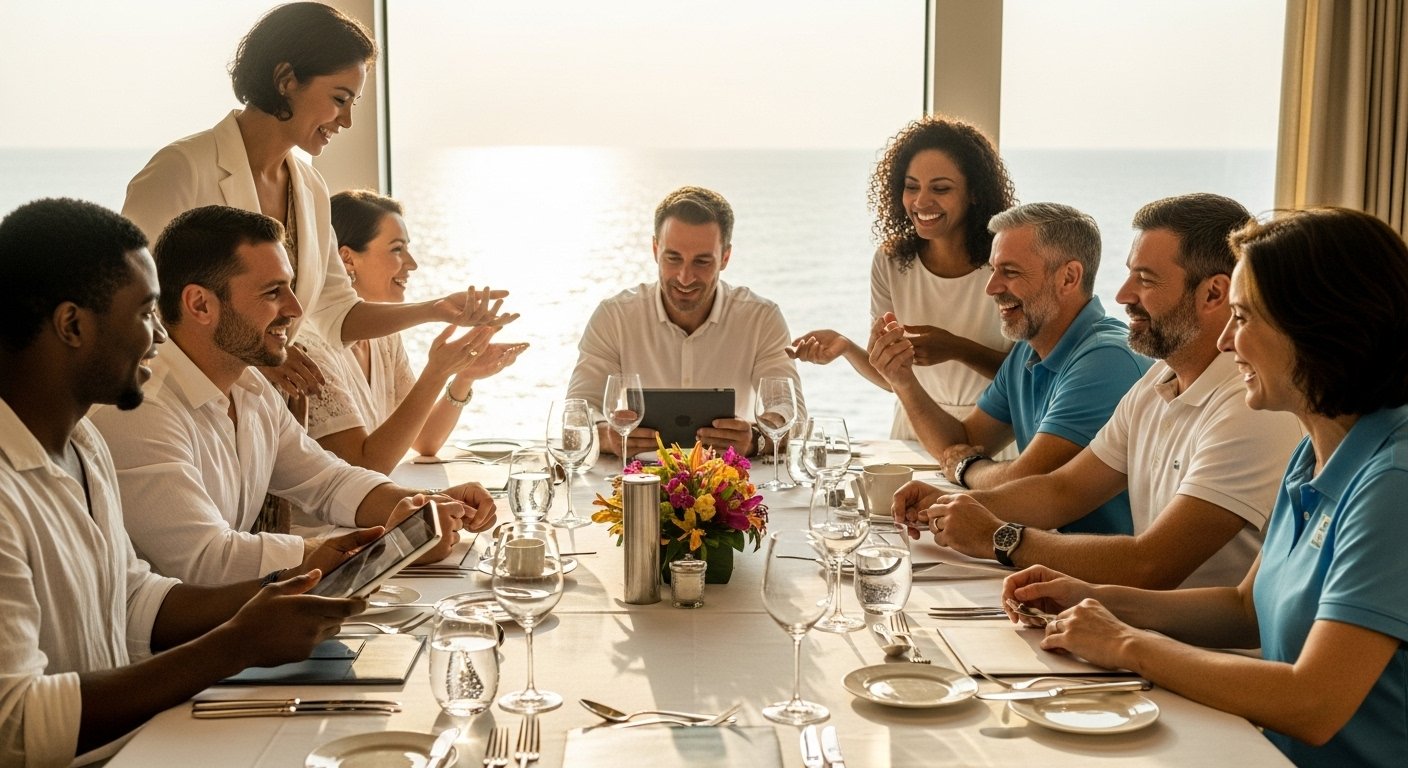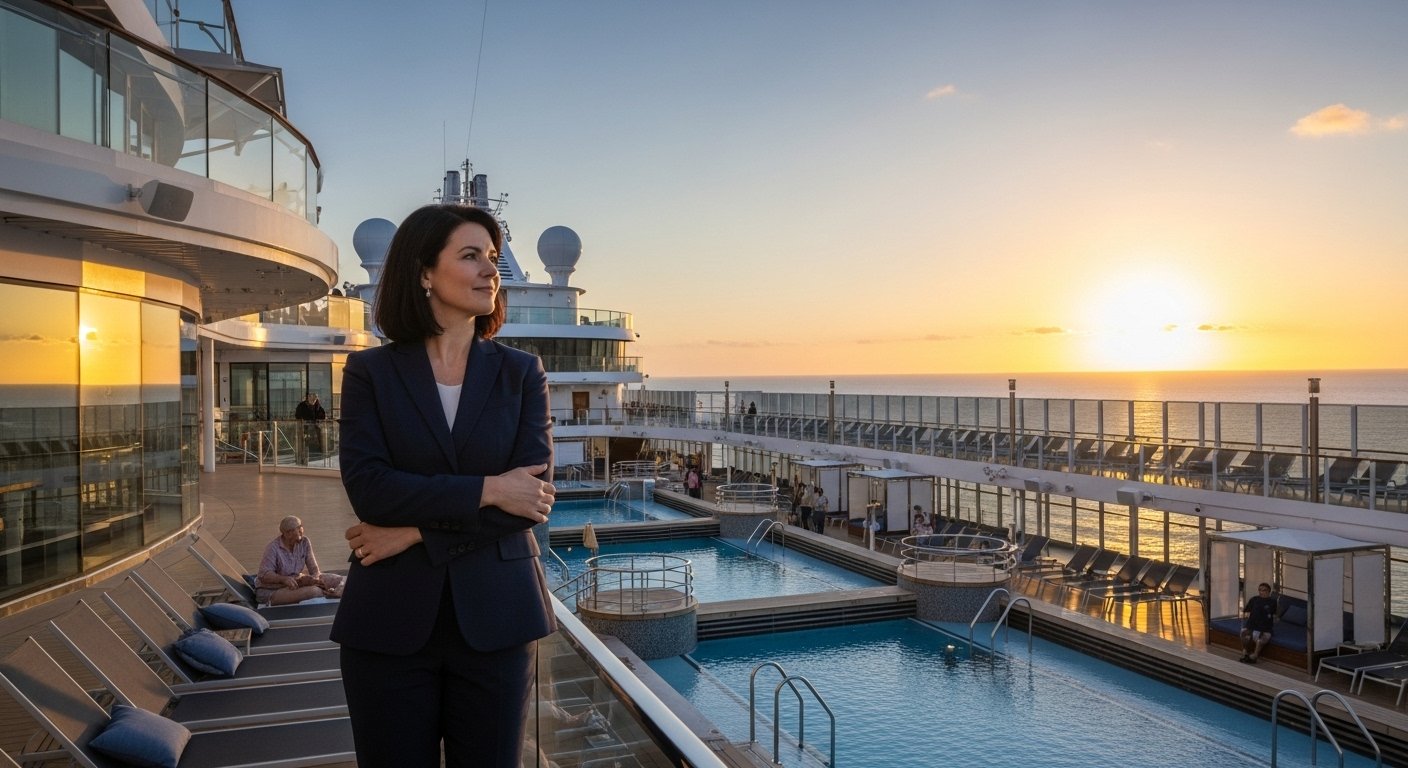Why the Best Corporate Retreats Start With a Question: Who Do You Want to Become Together?
Your leadership team has sat through enough trust falls. You've done the ropes courses, the escape rooms, the team-building workshops with name tags and ice breakers. Everyone smiles, participates, maybe even laughs. Then Monday arrives, and it's like it never happened.
The Slack channels return to their usual rhythm. The silos rebuild themselves. The surface-level engagement that plagued your last quarterly meeting? Still there.
Here's what most corporate retreat planning gets wrong: we're asking the wrong question.
We ask: What activities should we do?
We should be asking: Who do we want to become together?
The Connection Crisis Reshaping Business
The data tells a story that most leaders already feel intuitively. Workplace friendships have declined 65% since 1990. Hybrid and remote work arrangements, while offering flexibility, have created what researchers call "the friendship recession" - and it's not just affecting morale. It's impacting your bottom line.
Teams without genuine connection underperform. They struggle to innovate. They experience higher turnover. The casual hallway conversations that once sparked breakthrough ideas? They don't happen on Zoom. The trust that develops when people truly know each other? It can't be manufactured in a 90-minute team building session.
This is why smart leaders are rethinking executive retreat planning entirely. They're recognizing that transformation doesn't happen in conference rooms. It happens when you create the right conditions for people to connect authentically - and then step back and let it unfold.
Why Traditional Corporate Retreats Fall Short
Most business retreats fail for a predictable reason: they're too easy to escape.
A nice resort in the mountains sounds ideal until half your team is sneaking back to their rooms to answer "just a few emails." The boutique hotel downtown promises focus until participants start slipping out early to beat traffic. Even the most carefully planned agenda falls apart when the environment itself works against your goals.
Traditional retreat venues also require you to coordinate everything separately. The meeting space from one vendor. Catering from another. Accommodations somewhere else. Team activities that require transportation, weather contingencies, and crossed fingers. By the time you've managed all the logistics, you're exhausted—and the retreat hasn't even started. (And often spending more than you would on a cruise-based alternative.)
But there's a deeper issue: these environments don't create the conditions for genuine transformation. They're simply prettier versions of the same spaces where your team already struggles to connect.
The Surprising Science of Togetherness at Sea
This is where cruise-based corporate retreats change the equation entirely.
When neuroscientists study breakthrough thinking, they consistently find that environmental change is one of the most powerful catalysts for new perspectives. Your brain quite literally thinks differently in novel environments.
A cruise retreat creates something rare in modern business life: total immersion. Your team isn't just attending a retreat - they're living it together. Breakfast conversations flow naturally into working sessions. Afternoon brainstorming happens on deck with ocean views. Evening debriefs occur over dinner, without anyone rushing home.
This isn't forced togetherness. It's organic connection that emerges when you remove the barriers that normally fragment teams. No one is checking out early. No one is splitting attention between the retreat and everything waiting back at the office. Everyone is genuinely, completely present.
Why the Ship, Itinerary, and Venues Matter As Much As the People
Let's be clear about something: we're not suggesting you throw your team on any cruise and hope for magic. The foundation matters enormously.
The right ship creates spaces for both structured work and organic connection. Modern cruise vessels offer private meeting rooms, presentation facilities, and breakout spaces that rival premium conference centers - but they also provide those unexpected moments. The quiet deck at sunrise where two team members have the conversation that shifts everything. The specialty restaurant where the leadership team finally relaxes enough to be honest about challenges.
The right itinerary gives your retreat natural rhythm. Port days provide stimulating new experiences that teams can share and process together. Sea days offer the focused time for deep work without the distractions that derail most business retreats. The journey itself becomes part of the transformation.
And here's what most organizations don't realize until it's too late: venue access makes or breaks group events. The private dining rooms where you host your working dinners? The event spaces where you gather your entire team? The areas perfect for celebrations or presentations? They book up fast - often before general cabin space does.
This is why executive retreat planning for 2026-2027 is happening right now. Cruise lines have just released their new deployments, and this is the golden window. Wait even a few weeks, and the prime group space vanishes. The venues that would make your retreat extraordinary? Already claimed by other organizations who understood the timing.
What Makes Leadership Retreats Actually Transform Teams
The best corporate retreats we've seen don't just schedule activities. They design conditions for transformation:
Uninterrupted Time Together: Days, not hours. Long enough for people to move past small talk and surface-level engagement. Long enough for trust to develop organically rather than being forced through exercises.
Shared Novel Experiences: New destinations create common ground. When your entire team navigates a new port city together, explores a different culture, or shares a truly unique experience, it builds connection in ways that trust falls never will.
Space to Be Human: The most powerful moments at sea often happen between the scheduled sessions. The casual conversation at the coffee station. The spontaneous gathering to watch the sunset. The late-night discussion that happens because no one has anywhere else they need to be.
Strategic Design Meets Organic Flow: Yes, you need structure. Working sessions with clear objectives. Time blocked for the important conversations that require focus. But the magic happens in the margins - and cruise retreats provide those margins naturally.
The Question That Changes Everything
So we return to where we started: Who do you want to become together?
Not what team-building activities should we schedule. Not what agenda should we follow. But who—as a team, as an organization, as leaders - do you want to be on the other side of this experience?
Before you plan another retreat, take ten minutes with these questions:
For yourself as a leader:
What does your team do brilliantly when they're at their best? What conditions allowed that to happen?
If you could wave a magic wand and change one thing about how your team works together, what would it be?
When was the last time you saw genuine trust and vulnerability in a team setting? What made that possible?
For your organization:
Complete this sentence: "Our team would be unstoppable if we could just ..."
What conversation has your leadership team been avoiding? Why?
If your team felt genuinely connected - not just aligned, but truly invested in each other's success - what would become possible that isn't possible now?
For your retreat vision:
What would make this retreat successful six months from now, not just on the last day?
What do you want people to say about this experience a year later?
If this retreat could give your team one lasting gift, what would it be?
These aren't rhetorical questions. Your answers will shape everything - from the environment you choose to the experiences you design to the moments you leave unstructured for organic connection.
Do you want to be a team that trusts each other enough to tackle your biggest challenges honestly? Do you want to be leaders who genuinely know and support each other, not just colleagues who attend the same meetings? Do you want to be an organization where innovation flows freely because people feel connected enough to take creative risks?
That's what the right corporate retreat planning creates. Not a fun week away from the office that everyone forgets by Friday. But a genuine inflection point where your team evolves into something stronger.
Your Moment to Plan Something Extraordinary
The ships are ready. The itineraries are available. But the venues, cabin configurations, and group spaces that make these retreats truly transformative? They won't last long.
This is your moment - while you still have the space to design an experience that matches your vision. While you can still secure the private dining rooms for your working dinners, the meeting spaces for your strategic sessions, and the cabin blocks that keep your team together rather than scattered across multiple decks.
The best leadership retreats in 2026, 2027, and 2028 are being planned right now. Not because those leaders have more time or bigger budgets, but because they understand that extraordinary experiences require the right foundation - and that foundation is available first to those who act while the window is open.
Who do you want your team to become together? And what conditions will help them get there?
If you're ready to explore what's possible, we'd love to help you design something extraordinary. Because the right retreat, in the right environment, with the right people? It doesn't just change a week. It changes everything that comes after. Ready to get started?




